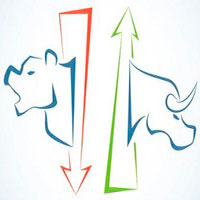Fundamental analysis is a trading discipline traders and analysts commonly use to assess the intrinsic value of a financial instrument by examining the underlying assets, industrial conditions and the broader economy. This article provides the basics to fundamental analysis that will come in handy for aspiring traders. Fundamental analysis in forex refers to the examining of the economic and geopolitical factors of different currencies, with the purpose of price forecasting.
Unlike technical analysts who purely focus on price action, fundamental analysts would examine data such as a nation’s gross domestic product, international trade balance, and unemployment rate, to form a holistic view of a currency.
Understanding Fundamental Analysis
Fundamental analysis is usually adopted by long-term traders who are willing to hold the positions for a longer time frame until the intrinsic value of an asset is fairly reflected on its market price. Patient traders who practise the discipline may find it rewarding when undervalued assets begin to outperform in a recovering market. The understanding of fundamental analysis follows a top-down approach; major geopolitical events would often impact sensitive economic data, which affects market sentiment.

Top-Down Approach For Fundamental Analysis
Geopolitics
Geopolitical events can take place on the back of changes to international relations and politics. Such events can drastically impact a nation’s currency value, and the impacts are usually long-term and could inflict a ripple effect on various sectors of an economy. The US-China trade conflict is one example of how such events can impact the market. China’s rapid ascension into the World Trade Organisation led to US running a trade deficit with China that amounted to US$345.6 billion in 2019. Both nations imposed tariffs on goods imported from each other, which had a severe financial impact on the US economy as the US had to pay higher import taxes to bring China goods into their country.
Economic Data
Economic data measures and represents the wellbeing and financial health of a nation. Economic data is so valuable because it determines the value of a currency, which affects the value of a currency pair a trader might be interested in. Most economic data is also scheduled to be released once every month on an economic calendar. Here’s another example on how the Covid-era in 2020 impacted the US economy.
After the pandemic started in early 2020, many economies including the US went into lockdowns. This resulted in a rapid increase in unemployment to levels not seen since the Great Depression. With high unemployment rates, the cost of producing goods also increase due to the lack of manpower. The rise of inflation during the pandemic can be credited to increased prices of goods and services due lack of production capabilities.
In the example above, let us break down the economic data from the different sectors.
- Economic Data: Impact
- Labour Market: Unemployment rate peaked to 14%
- Inflation: Consumer price index rose from 2% to 9.1%
Here are some of the most significant economic data releases with great influence over the market sentiments:
- Gross Domestic Product (GDP)
- Consumer Price Index (CPI)
- Interest Rate Decision
- Consumer Confidence
- Retail Sales
- Non-Farm Payroll
- New Home Sales
These economic data are typically released monthly. For example, Non-Farm Payrolls (NFP) will be released on the first Friday each month.
Using Fundamental Analysis: Market Sentiment
As we have learned about geopolitics and its impact on economic data, perhaps the more important question is “how do we use the data to trade Forex?”. In this case, market sentiment is a key factor to consider. Going back to the example of the US during the Covid-era, as the virus spread across the globe, economies were in full lockdown, and causalities from the infections increased exponentially. The overall sentiment in the financial markets was leaning towards fearful.
When the market is fearful, investors tend to flock to ‘safe havens’ such as the Japanese Yen, Swiss Franc, or even precious metals such as gold and silver. On the flipside, if the dominating sentiment in the markets is optimism, investors are not pressured to protect their assets in ‘safe havens’, but could instead, invest in the stock market and equities.
Using Fundamental Analysis: Stocks
While the principles of fundamental analysis are similar for both forex and stocks, there are some key differences between the two markets that require different approaches to analyse. The fundamental analysis conducted on stocks is a method of analysing a specific company’s financial and economic fundamentals to assess its intrinsic value and potential for growth. Some factors to consider when conducting fundamental analysis for stocks include a company’s earnings, revenues, future growth, return on equity, and profit margins.

Fundamental Analysis For Stocks Factors
Conclusion
In essence, fundamental analysis is a valuation approach based on the idea that each asset has a fair value which is often not reflected accurately on its market price due to the influence of external or broader economic factors. It could be used to determine whether the price of an asset is over- or undervalued and discover long-term trading opportunities as an outcome.

















